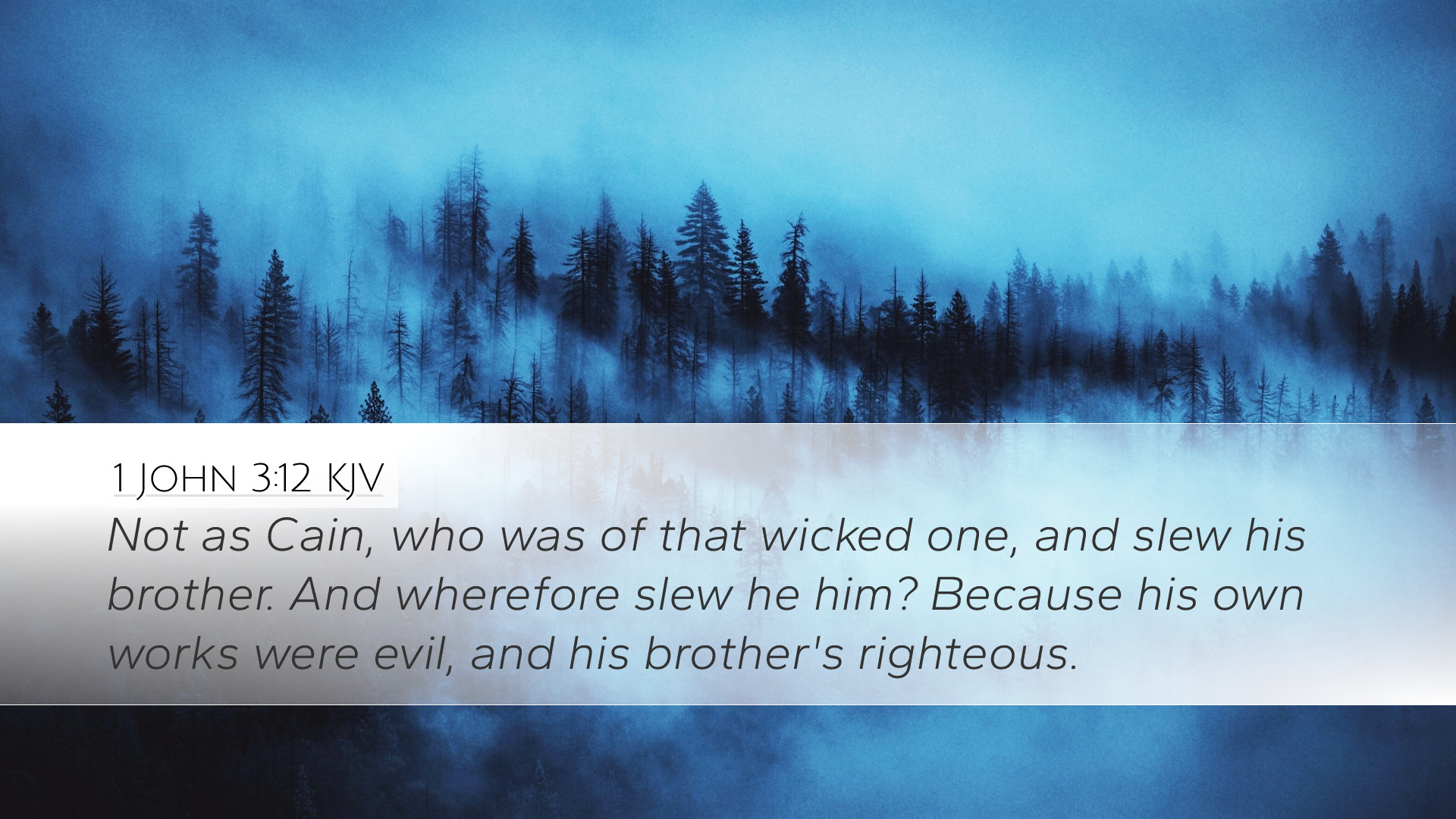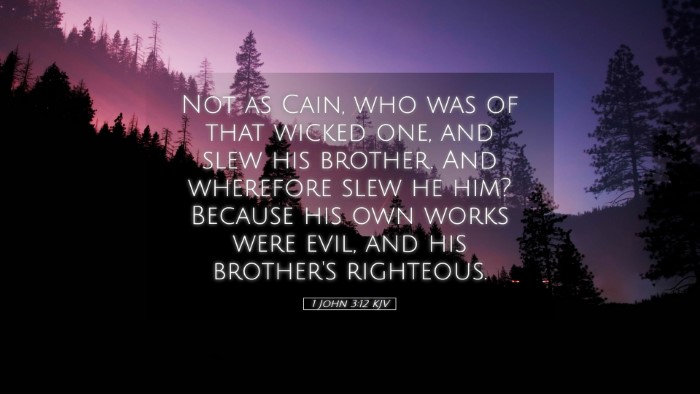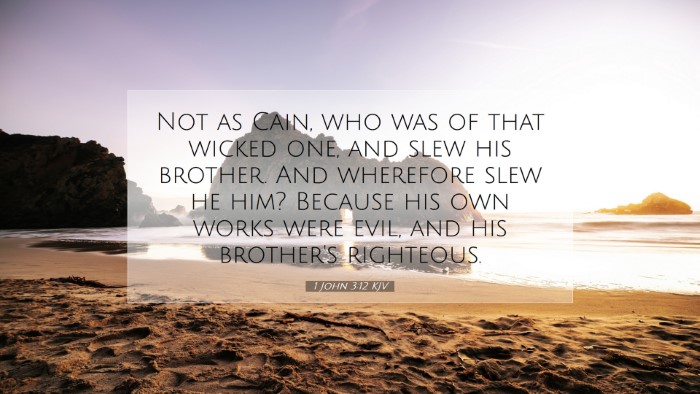Old Testament
Genesis Exodus Leviticus Numbers Deuteronomy Joshua Judges Ruth 1 Samuel 2 Samuel 1 Kings 2 Kings 1 Chronicles 2 Chronicles Ezra Nehemiah Esther Job Psalms Proverbs Ecclesiastes Song of Solomon Isaiah Jeremiah Lamentations Ezekiel Daniel Hosea Joel Amos Obadiah Jonah Micah Nahum Habakkuk Zephaniah Haggai Zechariah Malachi1 John 3:12
1 John 3:12 KJV
Not as Cain, who was of that wicked one, and slew his brother. And wherefore slew he him? Because his own works were evil, and his brother's righteous.
1 John 3:12 Bible Commentary
Commentary on 1 John 3:12
Verse: "Not as Cain, who was of that wicked one, and slew his brother. And wherefore slew he him? Because his own works were evil, and his brother's righteous."
Contextual Overview
This verse forms part of John's comparative analysis of the children of God and the children of the devil, illustrating the moral and spiritual divergence between them. John cites Cain as an archetype of the latter, whose actions serve as a poignant reminder of the destructive nature of sin and the enmity that arises from moral opposition.
Cain as an Example of Wickedness
Matthew Henry expounds on the character of Cain, emphasizing that his acts of violence stem from envy and a desire to eliminate what he perceived as competition. Cain represents the embodiment of jealousy that motivates wrongful actions, contrasting sharply with the righteousness that God desires from His followers.
According to Albert Barnes, Cain is depicted as being "of that wicked one," suggesting that his actions were influenced by the Devil. This connection exposes the spiritual realities behind human actions, reinforcing the notion that evil is not merely a human condition but has divine influences.
The Motivation Behind Cain’s Actions
The fundamental question posed by John—"And wherefore slew he him?"—draws attention to the underlying motivations of Cain’s sin. Adam Clarke points out that Cain’s feelings of inferiority regarding Abel's acceptable sacrifice led him to commit fratricide. This jealousy acted as a catalyst for violence, raising significant questions about how individuals respond to perceived injustice and feelings of inadequacy.
- Jealousy: Cain's feelings of jealousy directly led to violence.
- Sin's Nature: The unraveling of Cain's morality illustrates the deceitfulness of sin.
- Moral Responsibility: Although Cain acted out of envy, he remained morally responsible for his actions.
The Contrast Between Righteousness and Wickedness
In portraying Cain's actions, John starkly contrasts them with the life of the righteous. Matthew Henry indicates that the stark difference between Cain's evil deeds and Abel's righteousness highlights a fundamental aspect of human nature: the propensity towards either good or evil, depending on one's alignment with God. This not only serves as a moral lesson but also calls believers to introspect on their own lives and behaviors.
Theological Implications
This scripture holds significant theological implications for understanding sin, human nature, and interpersonal conflicts. Albert Barnes suggests that this verse underlines the notion that enmity with a righteous counterpart can lead to actions that are contrary to God's law. The wickedness exemplified by Cain serves as a cautionary tale for believers, warning against harboring negative feelings towards others, particularly those who live righteously.
Applicational Insights
For contemporary readers, especially pastors and theologians, this verse provides fertile ground for preaching and teaching on the dangers of jealousy and moral failure. Adam Clarke encourages believers to examine their relationships with others—especially those whose lives challenge or convict us. Instead of falling into patterns of jealousy and resentment, believers should strive for a spirit of grace, seeking to uplift and encourage one another in righteousness.
- Self-Reflection: Christians are urged to reflect on their relationships and the underlying motivations that drive their actions.
- Community Building: The church community should actively fight against envy and foster an environment of mutual support.
Conclusion
In 1 John 3:12, we find a sobering reminder of the potential for darkness that exists within the human heart. The narrative of Cain serves not only as a historical reference but also as a timeless exhortation for believers to pursue goodness, rooted in love and righteousness. Matthew Henry, Albert Barnes, and Adam Clarke collectively provide rich insights that encourage deeper reflection and application of this verse in the lives of all who seek to follow Christ.


